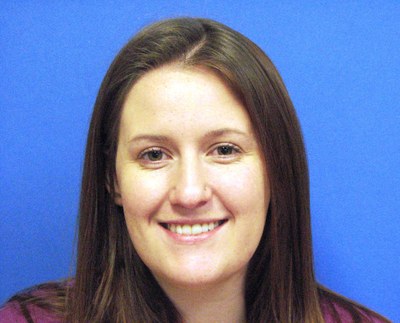SPHIS Home » Alumni and Donors » Alumni News » Alumni Spotlight: Brittany Saltsman Bell, MPH, CPH (’14)
Alumni Spotlight: Brittany Saltsman Bell, MPH, CPH (’14)
 Brittany Saltsman Bell, MPH, CPH, (’14) had a busy spring! As is a Senior Epidemiologist with the Bullitt County Health Department, she is responsible for communicable disease investigation and reporting. Brittany also serves on the health department’s Quality Improvement and Accreditation committees and is as a lead member of the Epidemic Rapid Response Team.
Brittany Saltsman Bell, MPH, CPH, (’14) had a busy spring! As is a Senior Epidemiologist with the Bullitt County Health Department, she is responsible for communicable disease investigation and reporting. Brittany also serves on the health department’s Quality Improvement and Accreditation committees and is as a lead member of the Epidemic Rapid Response Team.
On March 3, she returned to SPHIS to participate in our annual Practicum and Networking Fair. Just a month later, Brittany completed the Kentucky Population Health Leadership Institute (KPHLI).
We caught up with Brittany to learn more about her experience as a 2016-17 KPHLI scholar and her commitment to being a lifelong learner.
Briefly, what is the KPHLI program? What are the program’s goals?
The Kentucky Population Health Leadership Institute (KPHLI) is a yearlong leadership program for public health professionals. The mission of KPHLI is to strengthen the public health system in Kentucky by improving the skills of the professionals who administer state, regional, and local public health systems and their community partners. Scholars must have the desire to facilitate change and demonstrate the ability to accomplish goals in a complex environment.
Perhaps the largest portion of the program is devoted to the Change Master Project, which gives scholars the opportunity to affect their communities. My team decided to work on a project to address opioid overdose deaths in Kentucky. We wanted to provide local decision makers with reasonable and actionable items to reduce overdose death rates in their county. The Change Master Project required systematic collection of public health data, analysis, and recommendations of evidence-based practices.
What were some of the activities you did as a KPHLI participant?
KPHLI gives scholars the opportunity to participate in multiple activities throughout the year. The program includes leadership retreats and instruction on systems thinking and the learning organization model made famous by Peter Senge. Scholars also complete multiple assessments to learn more about themselves and their leadership style. I did a Discovery Learning 360 assessment, receiving feedback from my peers, bosses, and direct reports, and an Emergenetics Communication Profile that highlights preferences in the ways one thinks and behaves. This affirmed my preference for analytical and structural thinking, meaning that I prefer to seek results by finding data, examining it and drawing critical, objective conclusions.
I know your job at the Bullitt County Health Department keeps you busy. Why did you decide to do the KPHLI program this year?
Personal and professional development is a large part of our workforce development plan and my agency is very supportive of trainings such as KPHLI. Many coworkers had completed the program, so it came highly recommended. KPHLI gave me the opportunity to collaborate with public health leaders across Kentucky and to use their insight and experience to craft a project to benefit my local community. I also think I have benefited from learning about my leadership strengths and weaknesses . . . that’s the first step to improving!
What advice would you give a student getting ready to graduate with a public health degree?
Never stop learning! There is always something new to learn, whether that is a new programming language, software program, or leadership and management skills.






